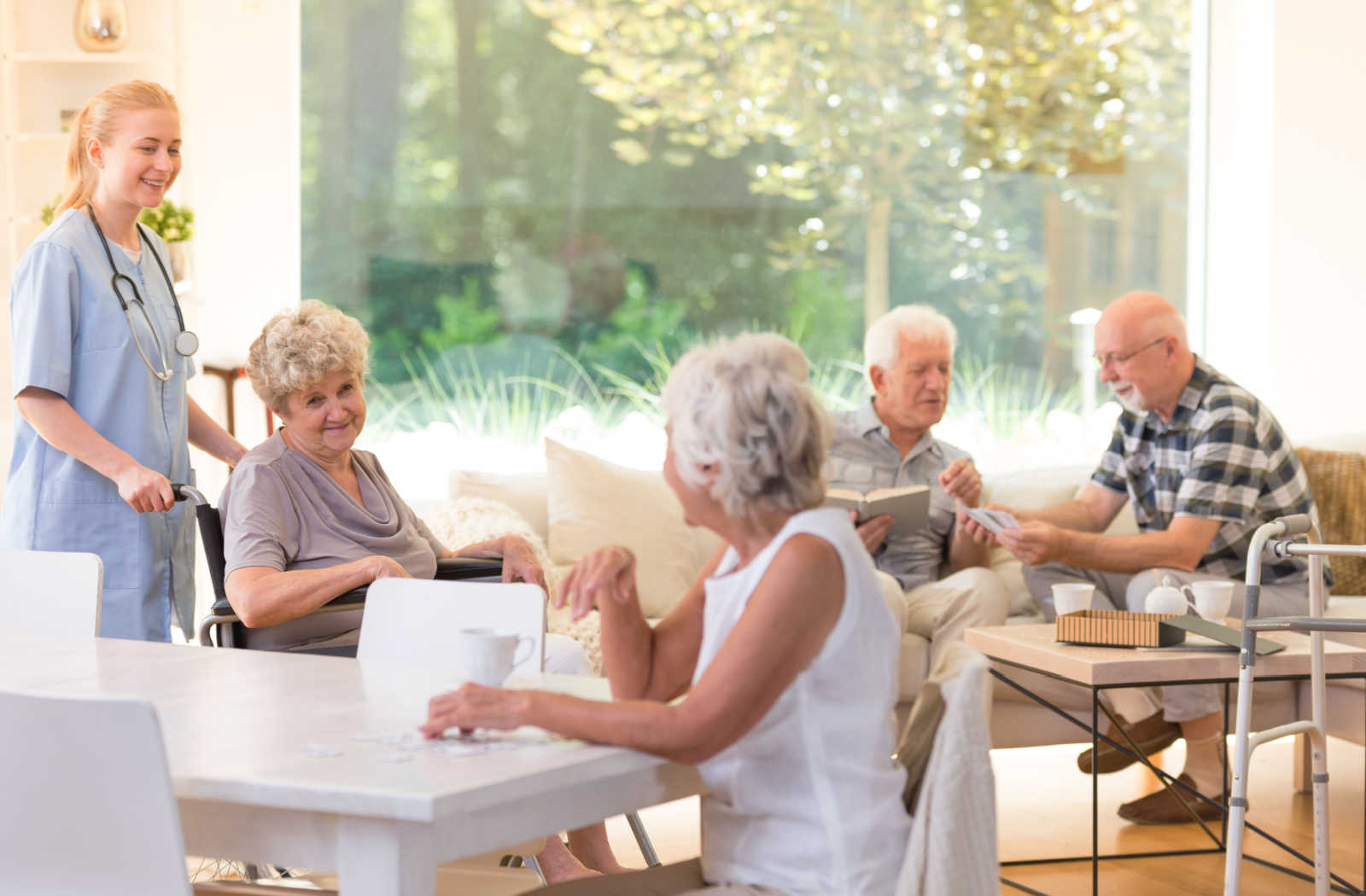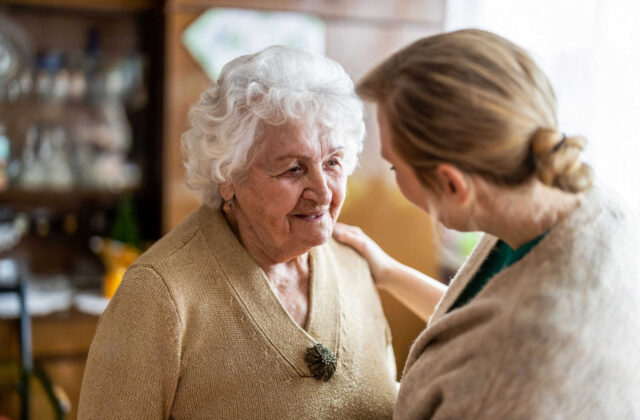Some minor memory loss, like forgetting where you placed your keys or the name of an acquaintance, is par for the course when aging. But memory loss related to dementia is not a normal part of aging.
During the initial development of dementia, a close friend or family member often steps in to act as a caregiver. Even without specific training, learning about the condition, developing a consistent routine for the senior, and helping them stay connected in a community are all significant ways to help someone deal with memory loss.
With advanced memory loss, memory care may be the best option in many cases. Many communities offer combinations of care. So, if there are early indicators that dementia may become an issue, finding an assisted living community that also offers memory care could make future transitions smoother.
Is Memory Loss Normal as an Adult Ages?
It’s a simple fact that our bodies begin wearing out as we age. Our joints don’t work as well as they once did, and we don’t heal as quickly if we’re injured. And our brains aren’t excluded from slowing down.
Nearly 40% of adults will experience some degree of memory loss by the time they reach 65. However, this doesn’t guarantee dementia is the diagnosis. In most cases, memory loss is minor enough that a person’s daily life isn’t affected, and they don’t require assistance due to their cognitive function.
What to Expect With Dementia & Memory Loss
Someone experiencing dementia-related memory loss will likely find that it affects their daily lives and makes it difficult to stick with a normal routine. Dementia can also make learning new things or completing unfamiliar tasks more difficult.
How to Help Someone With Memory Loss
There isn’t a single best way to help someone dealing with memory loss—It depends on their level of impairment and the available resources. Here are some strategies to consider.
Learn About the Condition
If you have a loved one who is developing cognitive impairment, learning about their condition is one of the best things you can do for them.
By putting in that effort to understand what’s going on in your loved one’s mind and body, you’re better equipped to help them in their daily lives. Additionally, cognitive decline can be confusing for the person it’s happening to. So, gaining the knowledge can equip you to help them understand what’s happening to their mind and body.
Consistency & Routine
Many people can benefit from consistency and routine in their lives. Seniors dealing with dementia-related conditions can also greatly benefit from them. It’s important to find the balance of rigidity so that the senior can improve skills, have less stress and anxiety, or enable a certain level of independence.
Some things to remember when creating a daily plan or routine for a senior with dementia include limiting choices so they don’t get overwhelmed, creating a balanced plan of activity and rest, and including their favorite activities regularly to improve their skills.
Stay Connected
Learning what you can about the condition and developing a consistent routine for your loved one are super important aspects of caring for them. But keeping them connected is really important as well.
Social connectedness is still very important even when someone struggles to remember things and the people around them. It can improve their mood and stress levels. Plus, their level of social interaction can help improve cognitive function by learning and remembering new things.
Another thing worth mentioning that’s related to staying connected is remembering that for yourself as the caregiver. It’s easy for burnout to sneak up on you. So, it’s important to make time for self-care and doing the things you love. Respite care can be a great option for a temporary break from being a caregiver.
 Find a Community Who Can Support You & Your Loved One
Find a Community Who Can Support You & Your Loved One
Finding a community that can support you and your loved one is an important part of helping a loved one with memory loss. Contact our office today and speak with the compassionate staff at Ralston Creek Neighborhood. We’re happy to answer your questions and book you a community tour.


